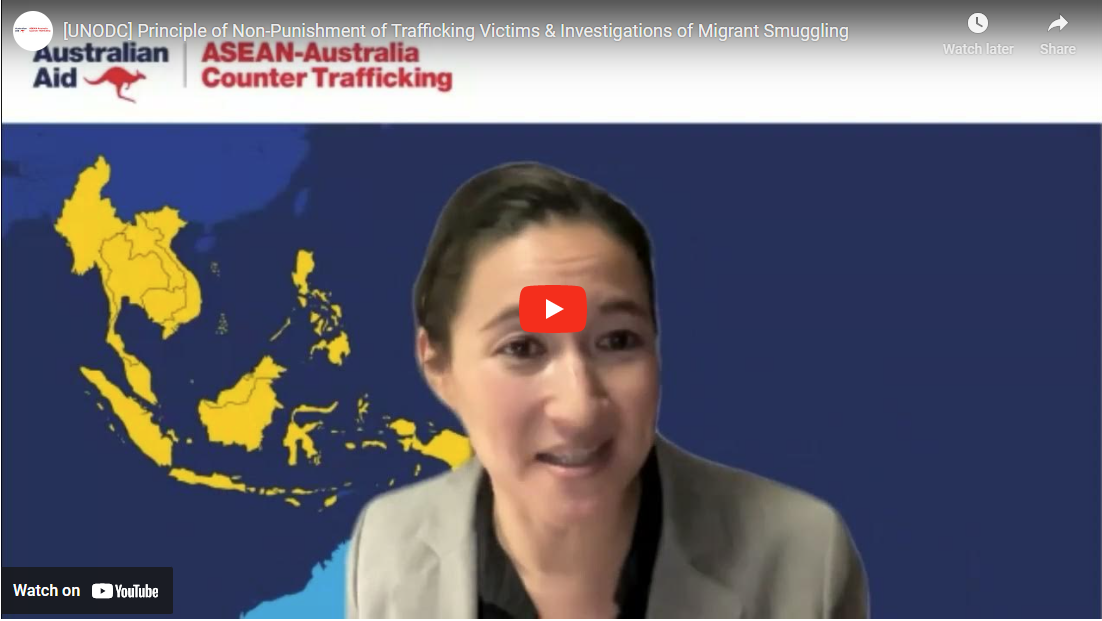
UNODC Special Event on “Doing Better: the Principle of Non-Punishment of Trafficking Victims & Investigations of Migrant Smuggling”
The Special Event on “Doing Better: the Principle of Non-Punishment of Trafficking Victims & Investigations of Migrant Smuggling”, organized by UNODC’s Human Trafficking and Migrant Smuggling Section, focused on two essential topics related to trafficking in persons and the smuggling of migrants on 28 June 2022 in hybrid format.
ASEAN-ACT International Law Adviser, Dr Marika McAdam presented the ASEAN-ACT study on the Implementation of the Non-Punishment Principle.
[4:33-13:22] Dr Marika McAdam’s presentation on the ASEAN-ACT Non-Punishment Study: “Implementing the Non-Punishment Principle to protect victims of trafficking”
—
Part 1 – Operationalising the principle of non-punishment of victims of trafficking
- Dr. Marika McAdam, International Law and Policy Adviser, ASEAN-Australia Counter Trafficking (Australia)
- Prof. Siobhán Mullally, UN Special Rapporteur on trafficking in persons, especially women and children (Ireland)
- Ms. Marija Andjelkovic, Director, ASTRA – Anti-Trafficking Action (Serbia)
Part 2 – Lessons learned and best practices in national procedures to investigate the smuggling of migrants
- Mr. Muhammad Tahir Rai, Director General, Federal Investigation Agency (FIA), Pakistan
- Mr. Selbol A. Langyi, NAPTIP prosecutor (Nigeria)
- Mr. Aondoaver Kuttuh, UNODC Consultant (Nigeria)
The first panel discussion focused on the principle of non-punishment of victims of trafficking for offences they have been compelled to commit as a consequence of trafficking. In this discussion, experts discussed the importance of this principle to ensure a human rights-based approach to addressing human trafficking. The panellists also discussed important measures that remain to be done in legislation, policies and practice to make it fully effective.
In a second part, panellists exchanged on lessons learned and best practices in national procedures to investigate the smuggling of migrants, as a means to improve investigations and contribute to harmonising approaches. Despite indications of progress made by States parties in the investigation of migrant smuggling offences, there has been limited advance in developing cross-border knowledge and understanding of investigatory approaches. This has a direct impact on sustaining an effective response to migrant smuggling, which also upholds the rights of smuggled refugees and migrants. This panel discussion allowed experts to engage in a technical discussion and share promising national practices, challenges and recommendations.
To watch the full recording, visit: https://youtu.be/iY3PXX_Fp5g